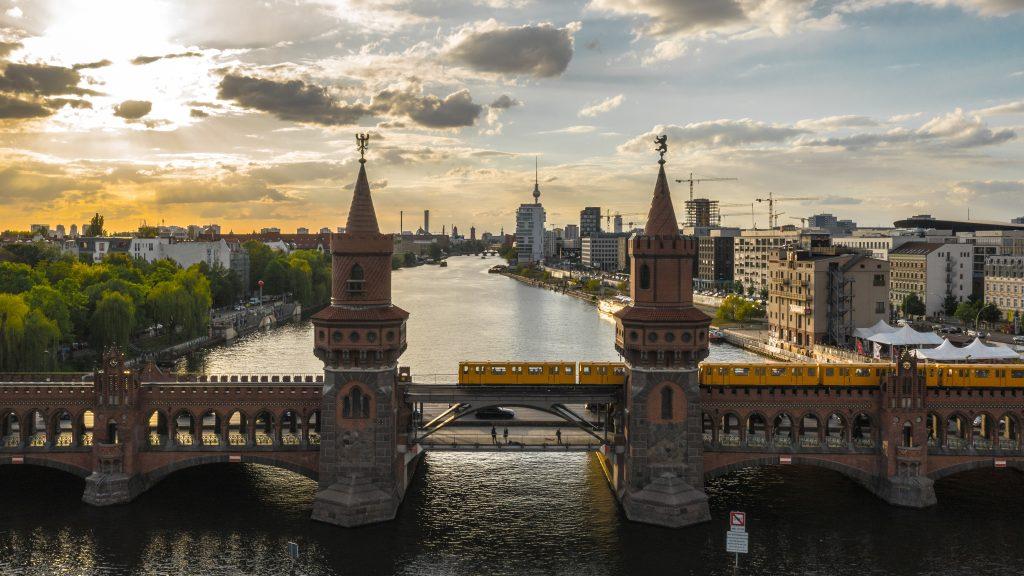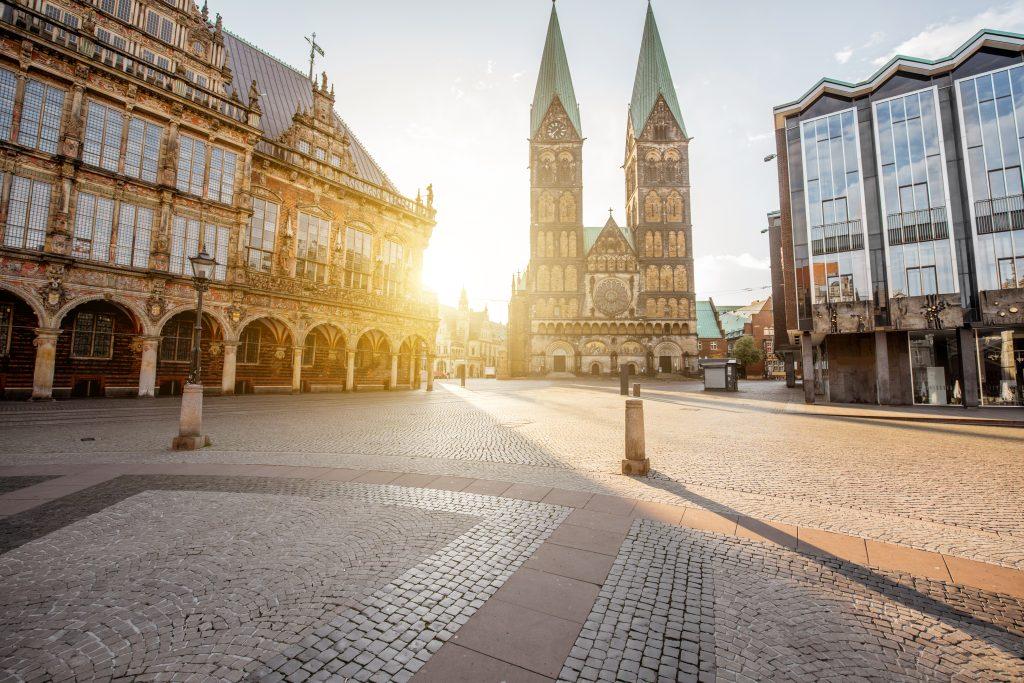Restore Your German Citizenship After Nazi-Era Persecution
If your parents, grandparents, or great-grandparents were stripped of their German citizenship during the Nazi regime, you may be eligible to reclaim it under Germany’s Citizenship Restoration Program. This law applies primarily to Jewish families and others persecuted for racial, religious, or political reasons—and extends to all their direct descendants.
Germany’s Citizenship Restoration Law (Effective August 20, 2021)
In 2021, Germany enacted the Fourth Law Amending the Nationality Act, which created a legal right to renaturalization for individuals who lost—or were denied—German citizenship due to Nazi persecution between January 30, 1933, and May 8, 1945.
This restoration also applies to all direct descendants of affected individuals. If your ancestor fled Nazi Germany, was denaturalized, or had to give up their citizenship for safety or political reasons, you may now qualify to become a German (and EU) citizen—even if you were born abroad and have never lived in Germany.




Who Is Eligible Under the German Citizenship Restoration Program?
You may qualify if you are a direct descendant of someone who:
Was stripped of German citizenship under Nazi policies between 1933 and 1945
Fled Germany due to persecution based on Jewish identity, political beliefs, religion, or ethnicity
Lost German citizenship due to discriminatory laws such as naturalization in another country
Important: This law is not limited to Jewish applicants—it includes any family affected by Nazi persecution, including political dissidents and ethnic minorities. It also applies to children, grandchildren, and great-grandchildren of the affected individuals.
What Does the Application Process Look Like?
The restoration process generally follows the same procedure as other descent-based German citizenship applications, with some key differences in eligibility documentation. You will need to:
Prove your ancestor was a German citizen who lost their nationality due to Nazi-era persecution
Provide birth, marriage, and other civil documents showing your direct lineage
Supply available evidence of persecution or denaturalization (in many cases, this is already recognized by German authorities)
Language knowledge, residency in Germany, and other standard naturalization conditions do not apply under this program.




What Documents Are Needed?
While each case is unique, typical documentation includes:
Your birth certificate and family lineage documents
Your ancestor’s German passport, identity papers, or denaturalization record
Supporting evidence of Nazi-era persecution (when available)
A birth certificate alone is usually not enough. With EuroPassport’s team of genealogists, we can help locate difficult-to-find documents—especially from Holocaust-era archives and international registries.
Why Consider Restoring Your German Citizenship?
Restoring your citizenship is not only a symbolic act of justice—it comes with powerful practical benefits:
A German passport allows you to live, work, and study in any EU country
Access world-class healthcare and education across Europe
Reconnect with your family’s cultural heritage and reclaim what was taken
Retain your existing nationality—Germany allows dual citizenship in these cases
Pass German citizenship to your children
Learn more about the benefits of holding citizenship with an EU Member State here.


Germany: A Nation That Remembers—and Welcomes You Back
Modern Germany stands as a beacon of remembrance, human rights, and reconciliation. From Berlin’s Holocaust memorials to government-led restitution programs, the country has made clear its commitment to addressing the injustices of its past.
Reclaiming your German citizenship is a deeply personal decision—but it also opens the door to a future in a progressive, prosperous, and globally connected nation.
Why EuroPassport?
EuroPassport is the first Canadian company to offer people an easy and affordable way to obtain legal European citizenship. Based in Toronto, Canada, we are a team of trusted immigration lawyers, genealogists and documentation specialists who have pioneered an efficient process for our clients to obtain the German Citizenship they seek. Our experts take care of all the paperwork, in optimal deadlines.
- We take away the paperwork hassle, bureaucracy, legal complexity – and work on your behalf, using the most efficient route to obtain the citizenship you seek.
- Our streamlined process cuts out lengthy waits and confusing roadblocks to citizenship. Look to us to expedite your German citizenship and deliver in optimal timelines.
- Skip the exorbitantly high legal fees. Our migration experts and a team of Canadian and European legal advisors have refined a process that is considerably more cost-efficient, especially for those with family roots in Europe.
- We are a respected Canadian company based in Toronto – so you won’t have to deal with distant overseas law firms. Our track record is remarkable, as the first and only fully registered European Immigration services business in Canada.
Frequently Asked Questions
The process of applying for and obtaining your German citizenship is unique to each case, however the average time is 12-18 months.
When you apply for citizenship, any previous denial may hamper your chances on subsequent applications. An example of this would be declaring a date that is incorrect according to laws and legislations.
Immigration laws are constantly changing, and we are keeping up with every change, which may affect the required documents.
We also have a network of lawyers and genealogists in Europe who will prepare and supervise your application. We have the potential to prepare the most formidable citizenship application you can have.
Don’t risk submitting an unsuccessful application. EuroPassport does everything for you! Our team cooperates with top-tier lawyers in Germany; we first put together your application locally, and then your documents are sent to Germany to continue the rest of the citizenship process. You won’t even have to visit your local embassy or consulate for the process of getting your citizenship certificate as this will be completed in Germany.
However, once your citizenship process is completed, you will have to visit the nearest German consulate to apply for the passport.
You are eligible to apply for German citizenship if at least one of your parents or grandparents is a German citizen, or was one at the time of their passing. Being a German citizen automatically makes you a European citizen with access to the numerous benefits/freedoms guaranteed in all EU countries.
Learn more about the benefits of holding citizenship with an EU Member State here.
This will depend on the complexity of your specific case and how many documents you require to prove your German ancestry. Learn more about the process and costs associated on our Fees page.
We do offer a 4-payment schedule for individuals and 6-payment schedule for families, and a discount of 5% for families of 2-4 people and 10% for families of 5 or more people.
Contact us to learn more about the pricing structure and payment options.
Yes, Germany generally allows dual citizenship!
You do not need to speak the language to reclaim citizenship.
Yes, we also conduct genealogy research in Germany. If you are interested in finding out more about your German ancestors, contact us for details.
You will only need to pay taxes in Germany if you move and live there at least 6 months of the year. If you move to another EU member country, you may not have to pay taxes in Germany, but you may still have to pay taxes in the European country in which you decide to live, so you would need to consult with the local tax authorities in that country.
Testimonials
Ready to Get Started?
Use this form and one of our team members will reach out to you to book a free consultation to answer any questions you may have and to assess your eligibility!
